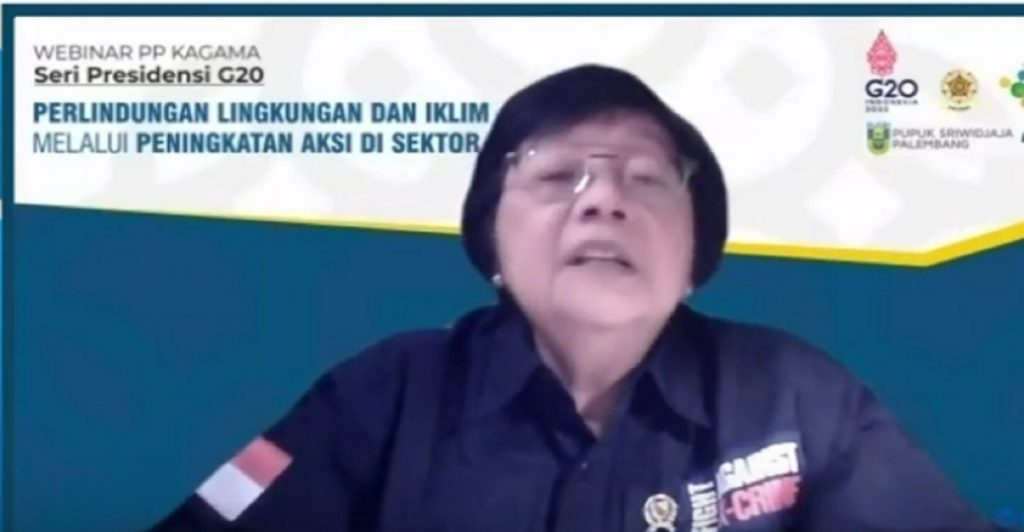
JAKARTA – Indonesia is ready to meet greenhouse gases (GHG) emissions with the issuance of a new ministerial decree, Minister of Environment and and Forestry (MoEF) Siti Nurbaya Bakar said Sunday (13/3). She said the degree regulated operational implementation of forest and other land use (FOLU) sector net sink by 2030.
“With this legal basis, Indonesia will continue to move to meet climate control targets. We are not waiting for the promises of developed countries, but will continue to work for the national interest,” Bakar said in the webinar titled ‘Environmental and climate protection through increased action in the land-based sector’ organised by Gadjah Mada University alumni association, Sunday (13/3).
After 2030, the FOLU sector is targeted to be able to absorb GHG along with other emission reduction activities from energy transition or decarbonization activities and other sector exploration activities. The agricultural sector is no exception, to achieve carbon neutral or net-zero emissions by 2060 or faster.
The decree that was signed on 24 February 2022 by MoEF Siti Nurbaya Bakar will apply the principles of sustainable development through sustainable forest management, as well as environmental and carbon governance. This decree includes two attachments.
“The main target remains to focus on efforts to reduce deforestation and forest degradation. Although the challenges are not easy, we will continue to work on laying the foundation for environmental development with the principle of sustainability, which has become a demand from the community/public in socio-economic development efforts for today’s needs, without sacrificing the needs of future generations by maintaining the continuity of the carrying capacity and capacity of the environment,” said Minister Bakar.
The concept of carbon neutral or net-zero emission is explained very differently from the concept of zero deforestation which is widely adopted by developed countries in conditions of net-zero population growth. Due to their past history, developed countries have carried out high deforestation when population growth was at its highest. At that time, developed countries developed without providing policy inputs to drastically reduce deforestation.
“The concept of carbon neutral or net-zero emission has been started by Indonesia by playing an active role through leading by example for controlling climate change. Leading by example has been shown by corrective steps over the past 5-7 years. Various efforts have yielded results, and this needs systematics to be even better,” said Bakar.
According to the MoEF, Indonesia has succeeded in reducing deforestation rates to the lowest point in history (2019 suppressed to 115 thousand ha), while suppressing forest and land fires at the lowest possible levels in this decade.
There is in place a permanent moratorium on primary natural forest and peat covering an area of more than 66 million ha, restoration and improvement of the peat water system of 3.4 million ha and their regulatory arrangements, watershed rehabilitation, sustainable forest management through controlling 14 million ha of plantation forest, social forestry management through agroforestry in 4.7 million ha until 2021.
In addition to maintaining a high area of High Conservation Value Forest (HCVF) in a forestry concession area of 2.7 million hectares, law enforcement through increasingly strict supervision and stronger regulations; steps towards strengthening spatial, quality and integrated data and information on forest resources as materials in the decision-making process.
“We need to be together and collaborate with each other to ensure the implementation of the operational plan for FOLU Net Sink 2030 goes well. I see the importance of campus discussions such as those held by Kagama to provide a corridor of knowledge related to the management of Indonesian environmental natural resources,” she concluded. (Hartatik)















